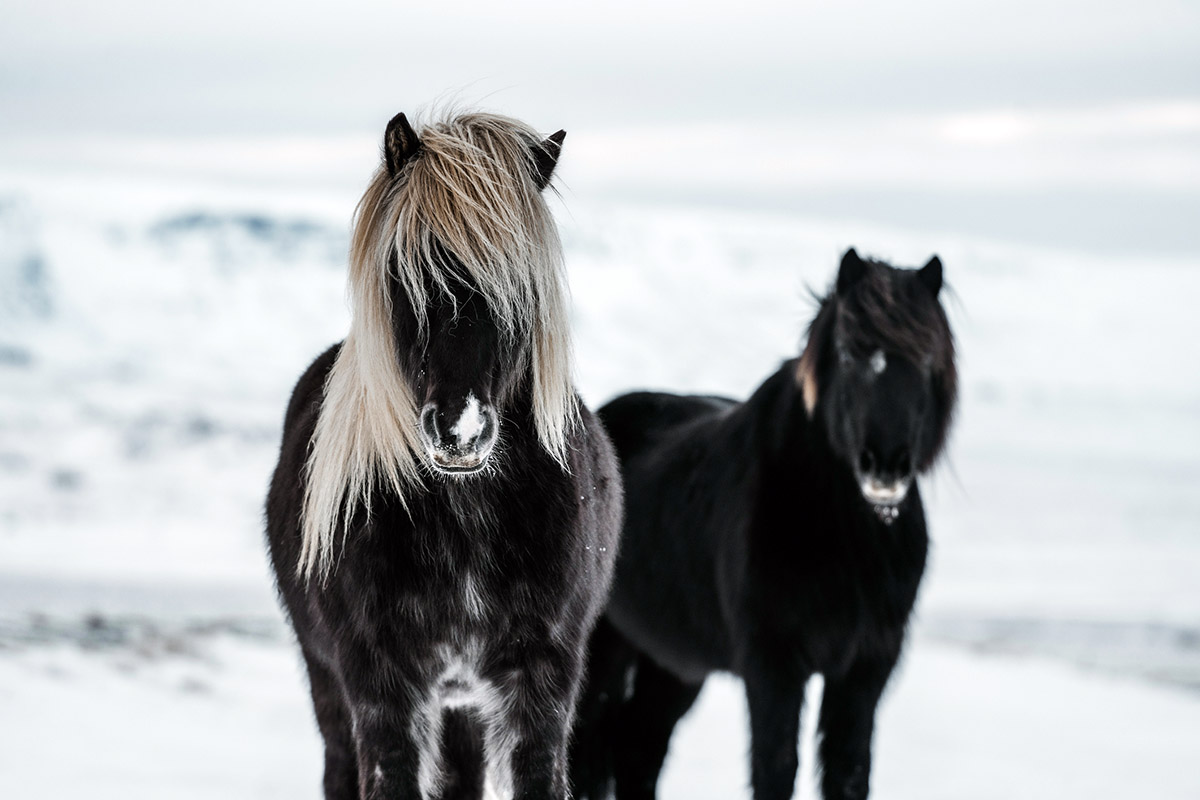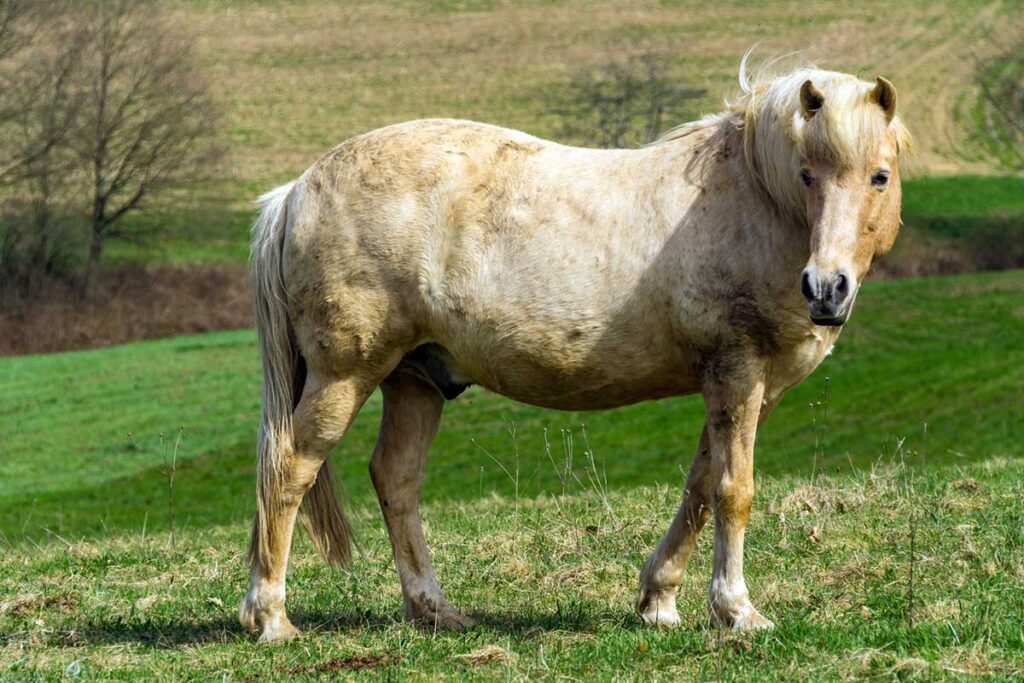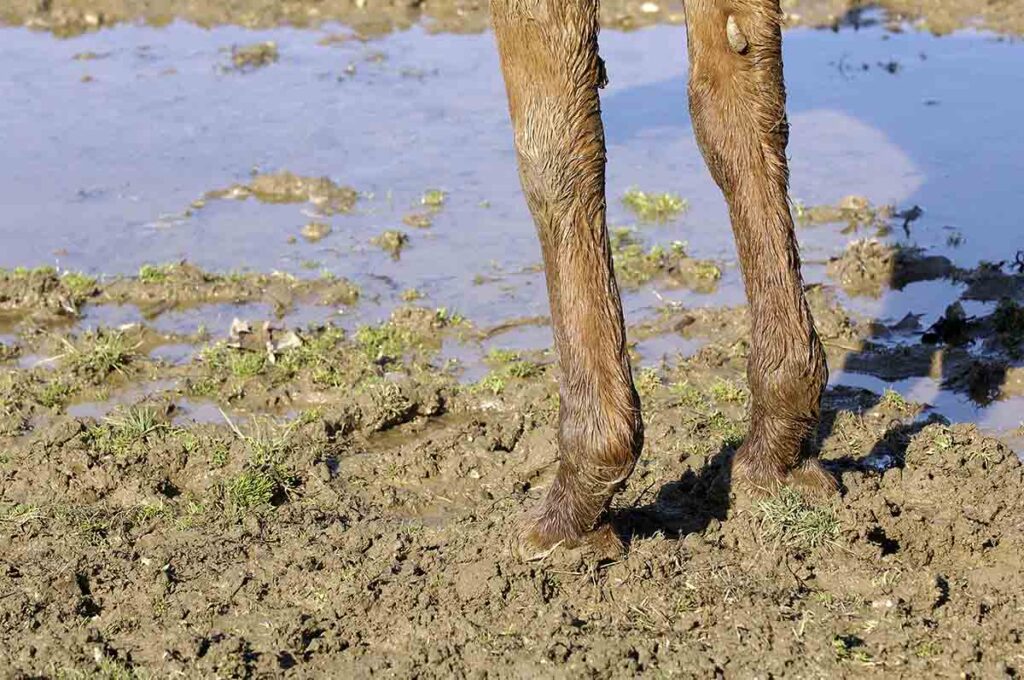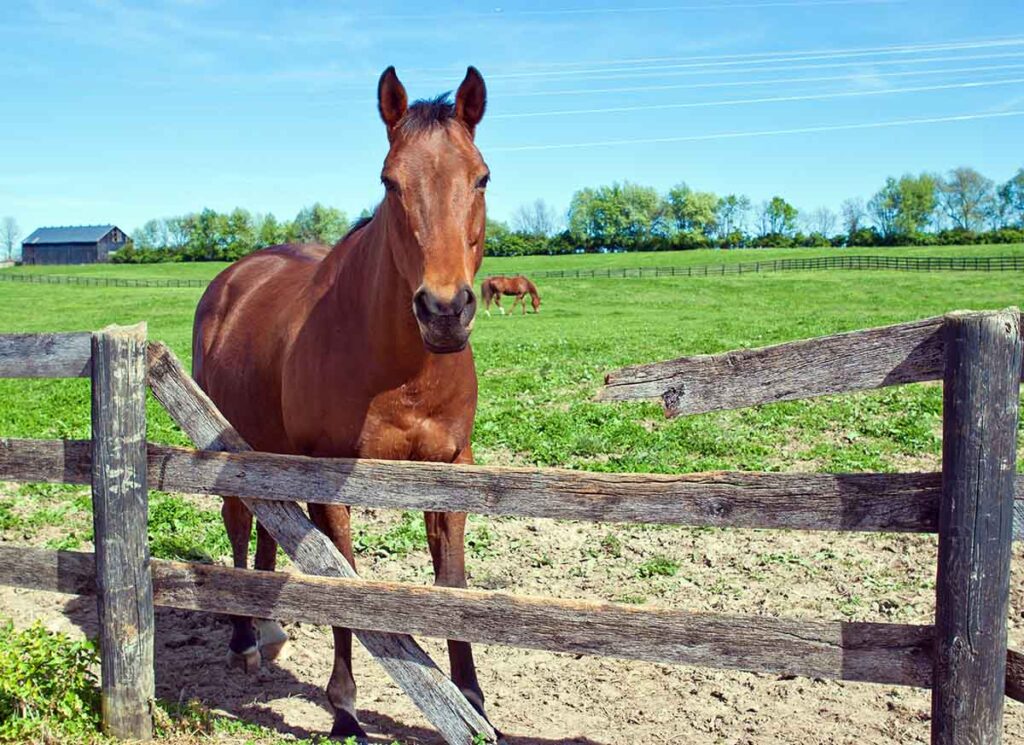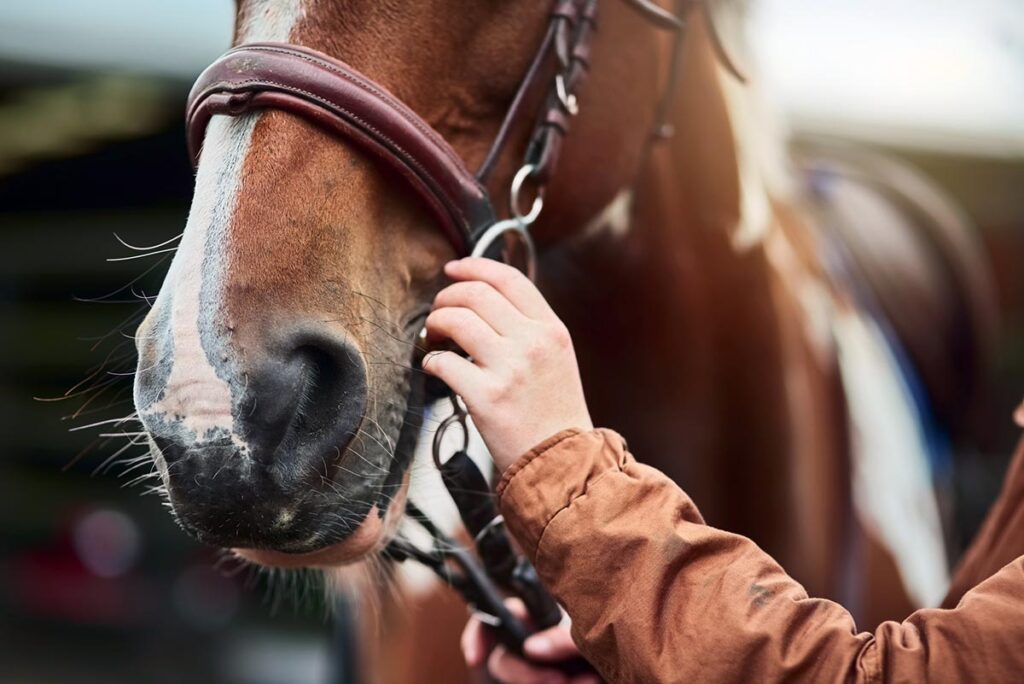Do you live in a region that experiences frigid temperatures and mountains of snow come winter? If so, you might want to consider for your first horse a breed that can easily withstand cold, harsh climates. Be it a pasture pet or a riding partner, a horse that can endure winter weather will be easier to keep in good health and condition. While horses are naturally adapted to cold weather, some breeds are better equipped to handle the elements than others. Here are five hardy horse breeds well-suited for winter living.
1. Icelandic Horse
Hailing from the Nordic “land of fire and ice,” Icelandic Horses are known for their hardiness and ability to withstand harsh winter climates. They have several adaptations that allow them to thrive in such conditions. First, Icelandic Horses have a dense, double-layered coat that provides excellent insulation. That thick undercoat and long overcoat give the breed its characteristic shaggy appearance in winter. Thick, coarse manes and tails provide further protection from the biting cold and brisk wind.
The Icelandic’s small stature and stocky build also help conserve body heat. With a smaller surface area to body mass ratio than other breeds, these horses need less energy to maintain a comfortable body temperature. Lastly, Icelandic Horses metabolize food very efficiently, allowing them to maintain muscle and fat reserves, even when forage is scarce. These low-maintenance little horses are right at home in winter.
2. Norwegian Fjord
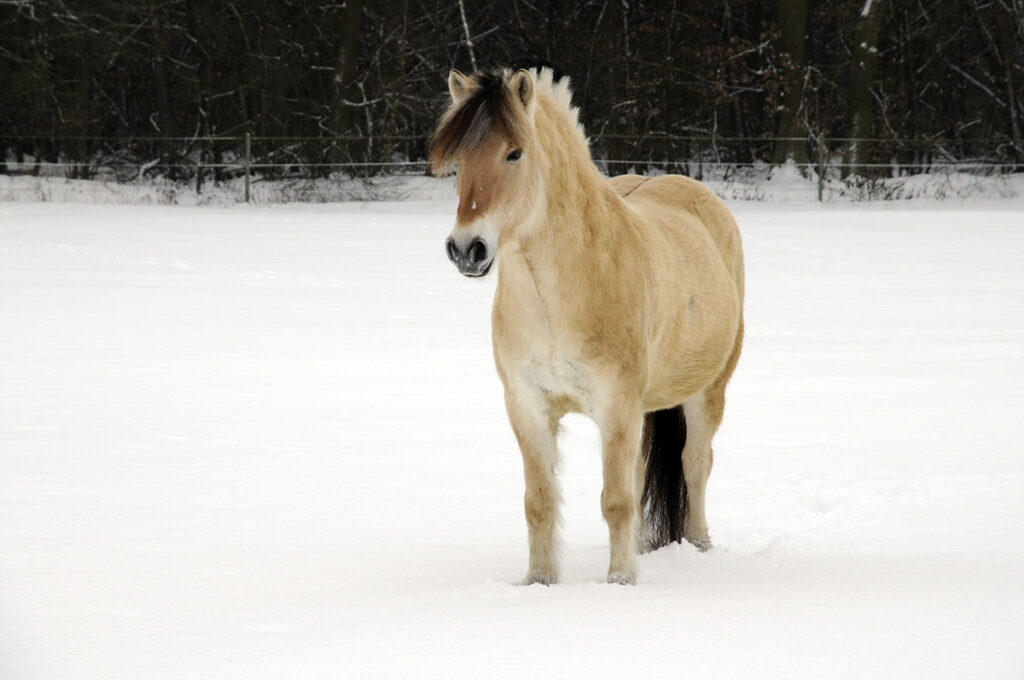
Norwegian Fjord horses were bred to withstand Norway’s cold winter climate. Like Icelandic Horses, their distinctive thick, heavy double coats provide excellent insulation against the cold. The waterproof outer layer also helps keep them warm and dry in snowy or wet conditions. Norwegian Fjords have a compact, muscular build that helps them conserve body heat. They also have strong hooves for navigating rugged terrain. Often considered “easy keepers,” Norwegian Fjords thrive on average-quality forage and might not require as much—if any—grain in their diets.
3. Shetland Pony
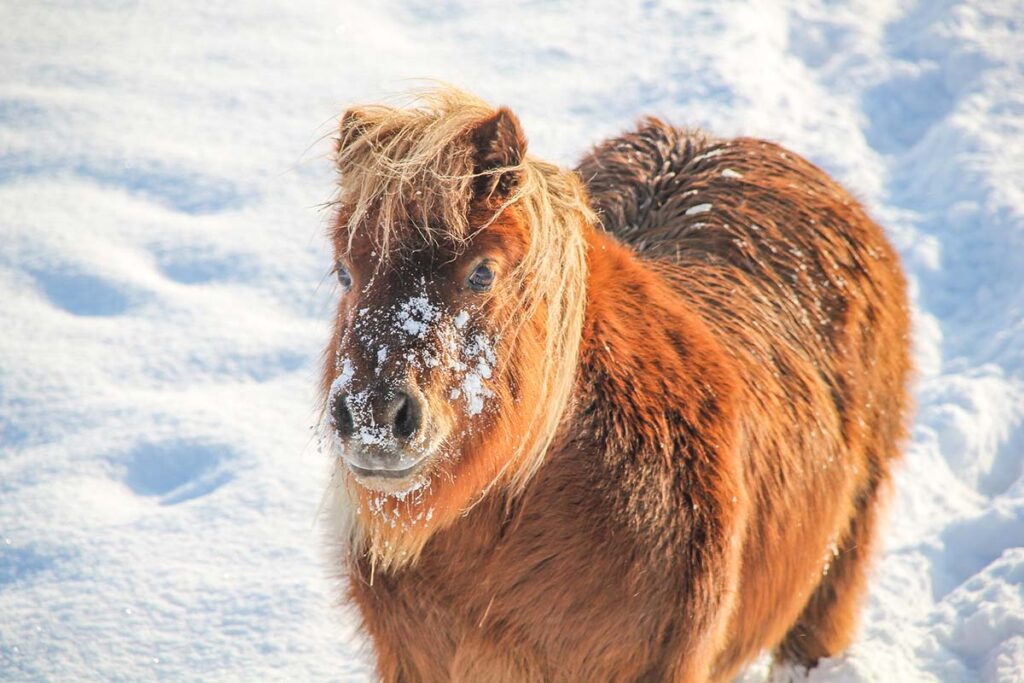
Shetland Ponies originated in the harsh environment of the Shetland Islands in the North Sea. As such, they’ve evolved to be masters of winter survival. Their thick double coat serves as a natural insulator. These fluffy little ponies, therefore, typically don’t need blankets to stay warm. Their small stature and sturdy build also allow them to conserve energy and retain body heat more efficiently than larger horses.
Shetland Ponies have efficient digestive systems, allowing them to easily extract and maximize the nutrients from forage during winter. In one study, researchers even found that Shetland Ponies lower their metabolic rate and body temperature to conserve energy when forage is scarce in winter.
4. Mustang
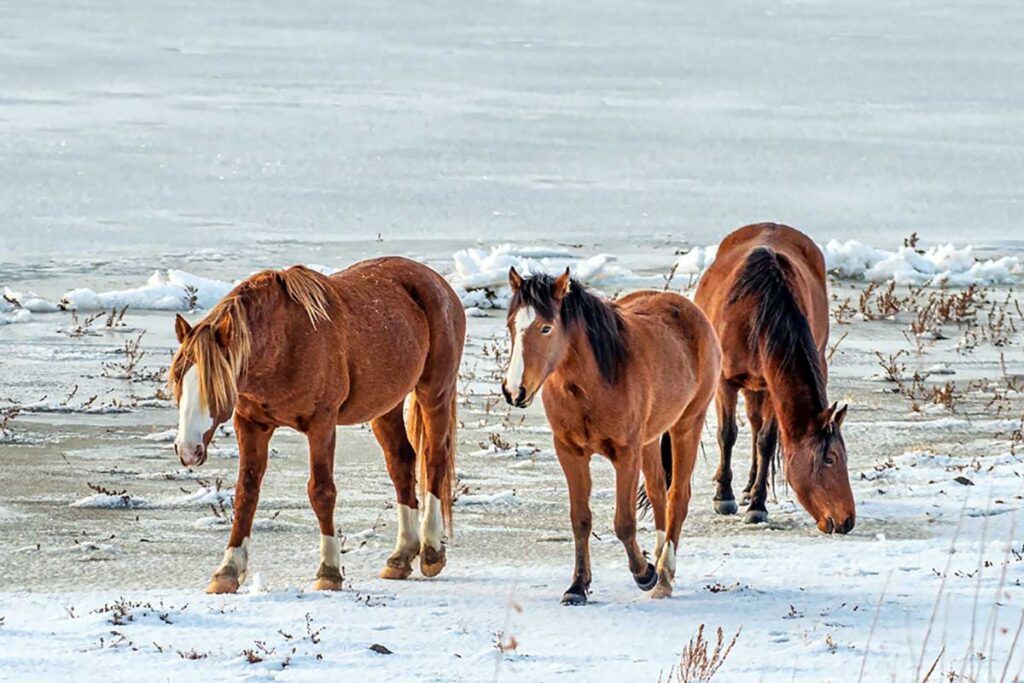
Mustangs, which for centuries have roamed the Western United States freely, have adapted to withstand harsh winter weather without human intervention. In winter, they grow a thick coat that helps regulate their body temperature and keep them warm. Their compact, sturdy physique allows them to retain body heat. And they’re known for their natural surefootness and hardy hooves when it comes to traversing rocky, icy landscapes.
Mustangs often browse for forage in areas other animals might overlook, allowing them to sustain themselves during tough times. On the range, they know to band together and use the natural topography as a wind block during winter storms.
5. Shire
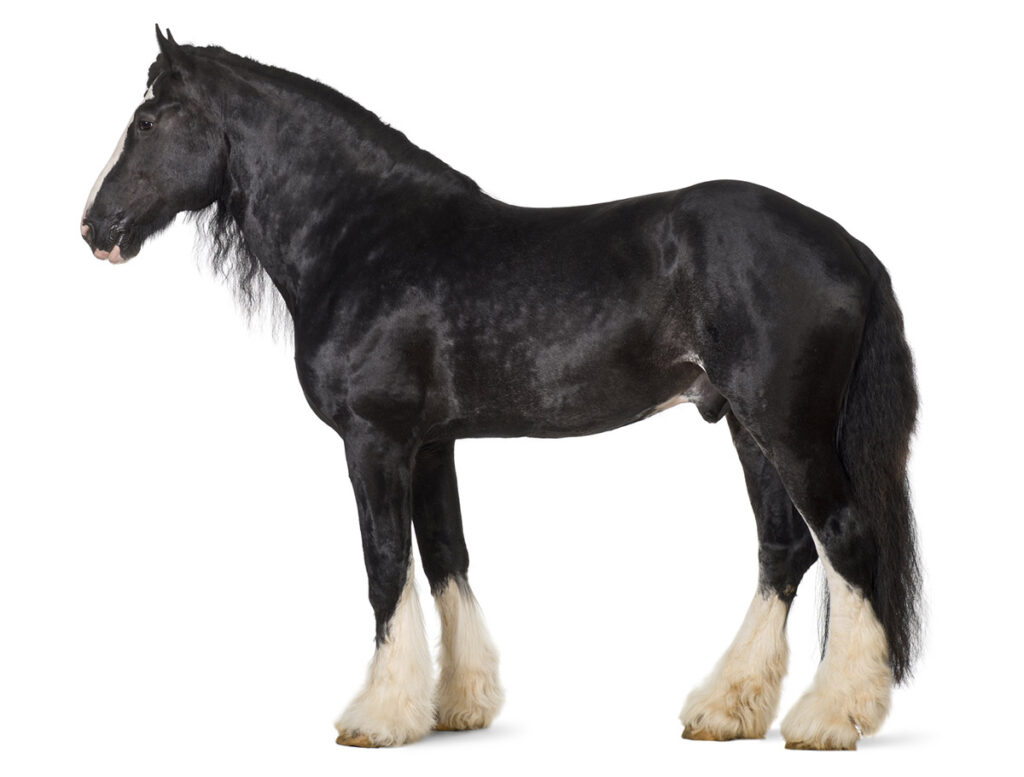
One of the largest hardy horse breeds, the Shire originates from the English countryside and is well-suited to cold weather and rugged land. These gentle giants possess a thick double hair coat, which acts as insulation to keep them warm. Additionally, they have a layer of fat under their skin that serves as an energy reserve, providing them with the necessary resources to generate body heat. Shire horses are also equipped with strong, sturdy hooves that enable them to navigate slippery terrain with ease. Long hair called feathering lines their lower legs, helping keep the extremities warm.
Each of these hardy horse breeds has unique characteristics that help them adapt to and survive in winter environments. However, you’ve probably noticed a few traits these horses have in common: Thick coats, a sturdy body type, and an efficient metabolism. If you want peace of mind that your horse will stay healthy and comfortable in winter, look for one with these qualities.
Related Reading:
Are you enjoying this content? Sign up for My New Horse’s FREE newsletter to get the latest horse owner info and fun facts delivered straight to your inbox!

